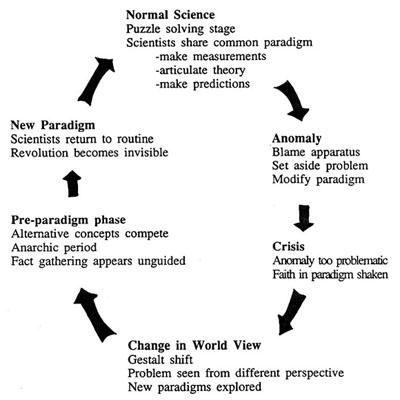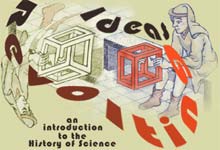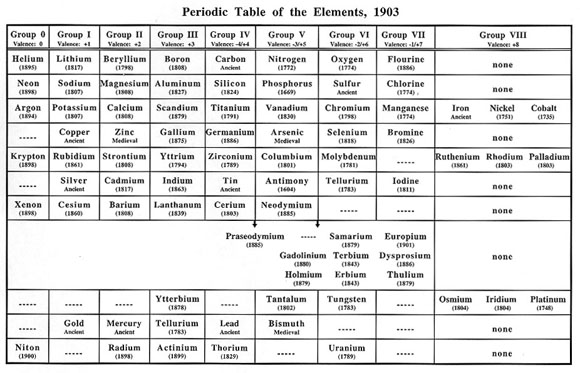|
old worldview is replaced by
new, different worldview
- process is cyclical (revolutionary)
- with each shift in paradigm, scientific understanding
moves no closer to The Truth, but rather away from Ignorance
paradigm
"[A model] from which spring particular coherent traditions of scientific
research."
A prevailing paradigm is a set of tacit and explicit "rules of
the game" that determine:
-
What sort of activity belongs in realm of science?
-
What are the boundaries of acceptable research?
-
How are these boundaries policed?
-
What makes a question "scientific"?
-
What makes a method "scientific"?
-
What makes an answer "scientific"?
-
Who says?
|
normal science
"Mopping-up operations [that] engage most scientists throughout their
careers."
Normal science refers to the everyday, routine puzzle-solving
work done by scientists who share a common paradigm--the "norm"--and use
it to:
-
make measurements,
-
articulate theory, and
-
make predictions.
|
anomaly
"Discovery commences with the ... recognition that nature has somehow
violated the paradigm-induced expectations that govern normal science."
An anomaly is something that does not fit the norm or match expectations.
Once an anomaly is identified, the usual response is to:
-
blame the apparatus, and/or
-
set the problem aside on the assumption that further investigation will
resolve the matter.
|
crisis
"The persistent failure of the puzzles of normal science to come out
as they should."
A paradigm will enter a crisis phase if the identified anomaly
(or anomalies) are perceived as too problematic. When this occurs,
faith in the prevailing paradigm is shaken. |
revolution
"Those non-cumulative developmental episodes in which an older paradigm
is replaced in whole or in part by an incompatible new one."
During a paradigmatic crisis, scientists are able to view their puzzle-solving
work from a different perspective, launching a revolution during
which:
-
new paradigms are explored,
-
alternative paradigms compete,
-
fact-gathering appears unguided,
-
a new paradigm emerges,
-
Gestalt shift occurs as scientists accept the new paradigm,
-
scientists return to routine of "normal science", and
-
the revolution becomes invisible.
|

|



